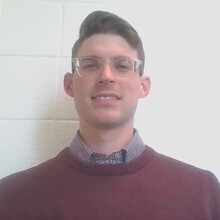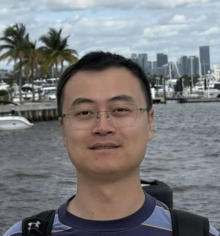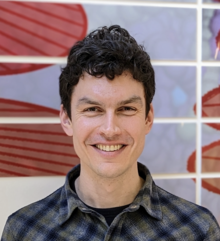 |
The ColabFit Exchange: Data for Advanced Materials Science |
ColabFit PIs
-

Ellad B. Tadmor
Professor of Aerospace Engineering and Mechanics
University of Minnesota
https://dept.aem.umn.edu/~tadmor/
Ellad B. Tadmor is a Professor of Aerospace Engineering and Mechanics at the University of Minnesota (USA). He received his B.Sc. and M.Sc. in Mechanical Engineering from the Technion – Israel Institute of Technology in 1987 and 1991, and his Ph.D. from Brown University (USA) in 1996. He pioneered computer simulation methods and theories that span multiple length and time scales to predict the behavior of materials and nanodevices, including 2D materials, from their atomic structure. He has published over 70 papers in this area and two graduate-level textbooks (modelingmaterials.org). He serves on the Editorial Board of the Journal of Elasticity. Prof. Tadmor is the PI of the KIM Project and the ColabFit Project which extends KIM functionality to machine learning models.
-

Stefano Martiniani
Assistant Professor of Physics, Chemistry and Mathematics
New York University
https://as.nyu.edu/faculty/stefano-martiniani.html
Stefano Martiniani is an Assistant Professor of Physics, Chemistry and Mathematics at New York University. He holds a Ph.D. in Chemistry and an M.Phil in Scientific Computing from the University of Cambridge, and a B.Sc. in Chemistry from Imperial College London. Dr. Martiniani’s research program revolves around the statistical physics of disordered and complex systems, focusing on the development of novel theoretical and computational frameworks to address problems spanning (i) the fundamental statistical physics of nonequilibrium systems, such as amorphous and active matter systems; (ii) the development and mathematical analysis of cortical circuit models; (iii) the integration of machine learning and sampling methodologies for molecular/material design and discovery. He has pioneered the development of techniques that enable the accurate determination of the volume of high-dimensional basins of attraction, which has led to the elucidation of their puzzling geometric structure and to the first direct test of the Edwards conjecture. Prior to joining NYU, Dr. Martiniani was an Assistant Professor of Chemical Engineering and Materials Science at the University of Minnesota - Twin Cities. Currently, he holds a Simons Foundation Faculty Fellowship, and previous awards include the Gates Cambridge Scholarship, St. John’s College Benefactors’ Scholarship and an Outstanding Ph.D. Thesis Award from the University of Cambridge.
ColabFit Team
-

Eric G. Fuemmeler
Research Associate, Aerospace Engineering and Mechanics
University of Minnesota
Eric is responsible for designing ColabFit's database and expanding the functionality of the colabfit-tool API. He received his Ph.D. in theoretical/computational chemistry from Cornell University, where he worked with Dr. Nandini Ananth to investigate the electronic structure of nonadiabatic systems with applications to next-generation solar cells and catalysis. As a postdoctoral fellow, he worked with Dr. Robert DiStasio Jr. at Cornell to develop intuitive orbital localization schemes applied to occupied and virtual spaces, and with Dr. Bradley Erickson at Mayo Clinic to develop AI tools for the early detection of pancreatic cancer.
-

Amit Gupta
Research Associate, Aerospace Engineering and Mechanics
University of Minnesota
Amit is a post-doctoral associate working on using the ColabFit framework for developing machine-learned force fields for 2D materials. He has obtained his PhD in Physical Chemistry from Indian Institute of Science, where he explored the dynamics of 2D MoS2 in various solvent media, and tried to reconcile experimental spectroscopic measurements with molecular dynamics simulations. Following his PhD, he worked as a post-doc at Tata Institute of Fundamental Research for developing datasets and methods in learning ground state and excited state molecular properties.
-

Zeren Shui
Applied Scientist
Amazon Web Services
Zeren Shui is an Applied Scientist at Amazon Web Services. He earned his Ph.D. in Computer Science from the University of Minnesota under the advice of Prof. George Karypis. His research interests encompass a wide range of machine learning and deep learning topics, with a particular focus on AI for Science, recommender systems, and large language models.
-

Josh Vita
Postdoctoral Researcher
Lawrence Livermore National Laboratory
Josh Vita is currently a postdoc at Lawrence Livermore National Laboratory working on uncertainty quantification for interatomic potentials. Josh obtained a Ph.D. in materials science and engineering from the University of Illinois Urbana Champaign (UIUC) in 2023, where his work focused on the development of efficient, interpretable models for describing atomic interactions, and the design of algorithms and databases for fitting those models. He graduated with bachelors degrees in materials science and mathematics from the University of Arizona in 2017 and interned at Sandia National Laboratories (2016) developing image analysis software.
Past Team Members
-

Ryan S. Elliott
Professor of Aerospace Engineering and Mechanics
University of Minnesota
Ryan S. Elliott is a Professor in the Department of Aerospace Engineering and Mechanics at the University of Minnesota. He received a B.S. in Engineering Mechanics from Michigan State University (1998), and a M.S.E. in Aerospace Engineering (1999), a M.S. in Mathematics (2002), and a Ph.D. in Aerospace Engineering and Scientific Computing (2004), all from the University of Michigan. Dr. Elliott's areas of expertise include atomistic and continuum stability problems, computational mechanics, pattern formation, symmetry group theory, and bifurcation theory. He has received many awards for his work, including: the Tau Beta Pi Matthews Fellowship (1998), the Ivor K. McIvor Award in Applied Mechanics, the Frederick A. Howes Scholar in Computational Science award (2005), a National Science Foundation CAREER grant (2007), a University of Minnesota McKnight Land-Grant Professorship (2009), the Russell J. Penrose Faculty Fellowship (2012), and the Thomas J.R. Hughes Young Investigator award (2014). He was elected Fellow of the American Society of Mechanical Engineers in 2017, and serves on the Editorial Board of the Journal of Elasticity and the International Journal of Solids and Strucutres. He is a co-PI of the KIM project and is one of the primary developers of the kim-api software implementation.
-

Mingjian Wen
Assistant Professor in Chemical and Biomolecular Engineering
University of Houston
Mingjian was a Ph.D. student working with Prof. Tadmor on developing KIM-based fitting framework for traditional "physics-based" and machine learning interatomic models. He is currently an Assistant Professor in Chemical and Biomolecular Engineering at the University of Houston (UH). His research centers on developing data-driven and machine learning methods, applying first-principles and classical molecular simulations, and building open cyberinfrastructure to understand and design materials and chemical reactions for renewable energy applications.
